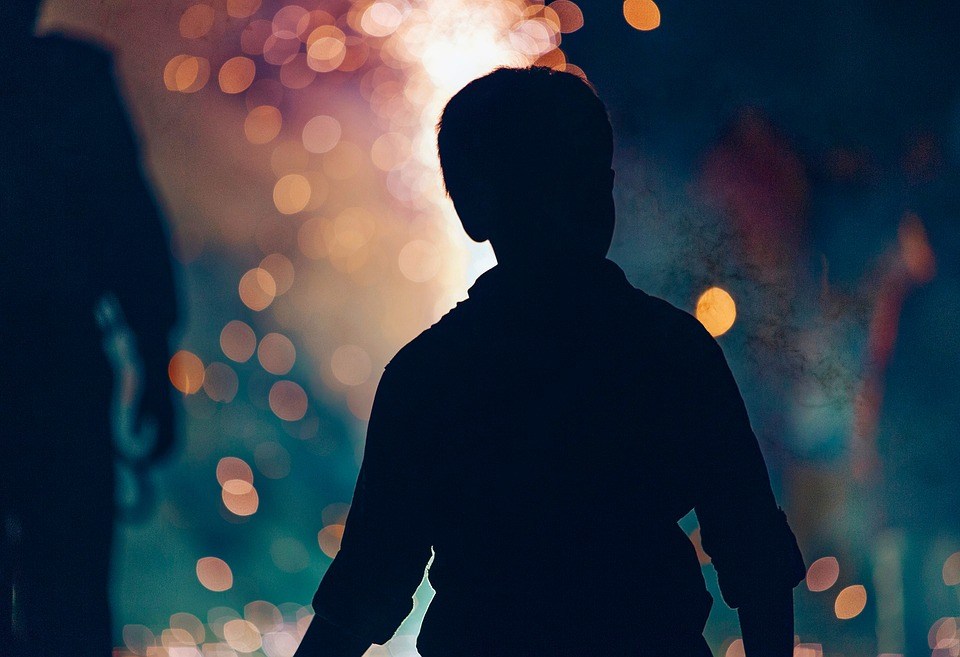We sat in a mass of people blanketed over the sweeping lawn. Everyone staring up, ready to ooh and aww over the light show that was about to begin. Fourth of July fireworks never fail to disappoint. Then, without warning, we were under attack. People all around us started screaming and running. My partner and I scanned the crowd in search of a stray firework, or, more gravely, someone attacking people. To our relief and amusement, some joker forgot to turn the timer off on the lawn sprinklers. The stampede was the result of some stray water bullets. No big deal. Then…
Crack!
Fireworks launched into the sky, exploding left and right. My child immediately covered his ears, his body quaked with the shock from the booming explosions.
“It’s too loud!” he shouted.
He had always been extra sensitive to sound. But they’re fireworks! Everyone loves fireworks, right? Wrong. It’s a safe guess that a majority of people like fireworks, but there is a solid minority that are deeply affected by the thundering crack of an explosive.
That delightful and innocent sound may send someone back to a time full of fear, violence, and death; war. Walls crumbling, bodies falling. PTSD is powerful and unpredictable. Isn’t the 4th of July supposed to be a day celebrating our independence? How can we include those that sacrificed their lives and traumatized their minds in a day that is possible because of their contributions?
The other minority that is affected by the boom of a firework are children with sensory processing issues. Like my son. A dog barking, a fire engine siren, or miniature bomb exploding in the sky, all claw at the brain of a sensory kid. And not in a cozy, scratch-your-back kind of way, but in a cat shredding the leg off your couch kind of way. He wants to enjoy these moments, but the volume in his head is on full-blast. He has no way to cope with it. He needs tools.
What kind of tools can you give to those affected by loud sounds?
The first and easiest tool is noise-cancelling headphones. Those little guys are a lifesaver. Too bad we were ill-prepared parents who didn’t own a pair. We did, however, bring a pair of kid headphones. We thought we could just play some Blue Swede, “Hooked On A Feeling,” and drown out the noise of the celebration. Hey, it worked!
The second, and most essential, instrument that you can give a person, big or small, to help them cope with a painful experience is… give them autonomy. “It’s too loud! I want to leave!” Okay. Done. Let’s go. Did you love the color explosions in the sky? I had a great time with you. It’s understandable that it felt overwhelming. They were loud for me too. Respecting someone’s boundaries goes a long way with respecting them as a person. If they feel they have an escape plan, they will feel more confident and at ease in an uneasy environment.
And a final tip for making your Independence Day celebrations a blast while also including those that are impacted by loud sounds: lower your expectations. Failed expectations are disappointing. If we go into the event hoping for the best, but being empathetic to the “worst,” everyone will feel much more relaxed. Plan to leave when one person is ready. Go with the flow. Cook some s’mores on your night that has gone up in flames. There’s always next year, and there’s definitely more than one way to commemorate the day.
The 4th of July is a special holiday that should be spent celebrating. That celebration can come in many forms, from fireworks to spending time with the people that matter most. Maybe the firecrackers are too loud this year. You can always entertain your little one with colorful smoke bombs, sparklers, and a silent bit of pyrotechnic magic. Or even just a night in, watching Guardians of the Galaxy for the hundredth time in a row. Who needs fireworks, anyway?


